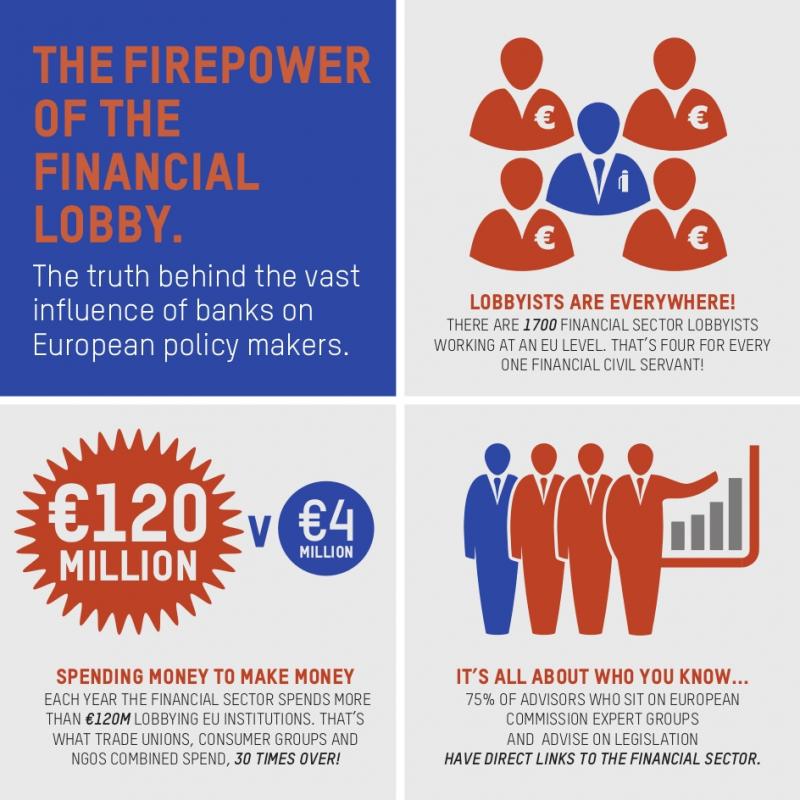
The financial industry employs 1.700 lobbyists and spends €120 million a year to influence the EU – at least
The financial industry spends more than €120 million per year on lobbying in Brussels and employs more than 1.700 lobbyists to influence EU policy-making, according to a study published today by Corporate Europe Observatory, ÖGB Europabüro (Brussels office of the Austrian Trade Union Federation), and AK EUROPA (Brussels office of the Austrian Chamber of Labour).
Kenneth Haar from Corporate Europe Observatory says: “The crisis revealed a clear need for stronger rules on financial markets. But reform has proved difficult, and these numbers are an important part of the explanation. The financial lobby's fire power to resist reform has been evident in all significant battles over financial regulation since the collapse of Lehman Brothers.”
The new report, “The fire power of the financial lobby” shows the financial industry commands tremendous lobbying resources and enjoys privileged access to decision makers. It reveals the financial sector lobbies EU decision-makers via over 700 organisations, including companies' public relations offices, business associations, and consultancies.
This figure outnumbers civil-society organisations and trade unions working on financial issues by a factor of more than five, with an even bigger imbalance when numbers of staff and lobbying expenses are compared. In sum, the financial lobby is massively outspending other actors, by a factor of more than 30.
In order to result in a safe estimate, the survey used the most conservative figures. Therefore, the actual numbers – and the imbalance between different interests – are likely to be far higher. This underestimate is mainly due to the lack of a mandatory register of lobbyists at the EU level that would provide reliable information for proper monitoring.
The report also shows the presence of the financial industry in the EU's official advisory groups that play a key role in helping to shape policy. Similarly, the financial lobby is massively over-represented here: 15 of the 17 expert groups covered by the study were heavily dominated by the financial industry.
Oliver Röpke, from ÖGB Europabüro said: “This situation represents a severe democratic problem that politicians must act on swiftly. A first step is to adopt effective rules on lobbying transparency and strong ethics rules against undue influence.”
Amir Ghoreishi from AK EUROPA said: “Our report shows a deep problem. The fact that the financial lobby is so dominant in advisory groups reveals that the European Commission feels that people representing the financial industry should be allowed to set the agenda. An arms-length principle should be applied immediately.”
